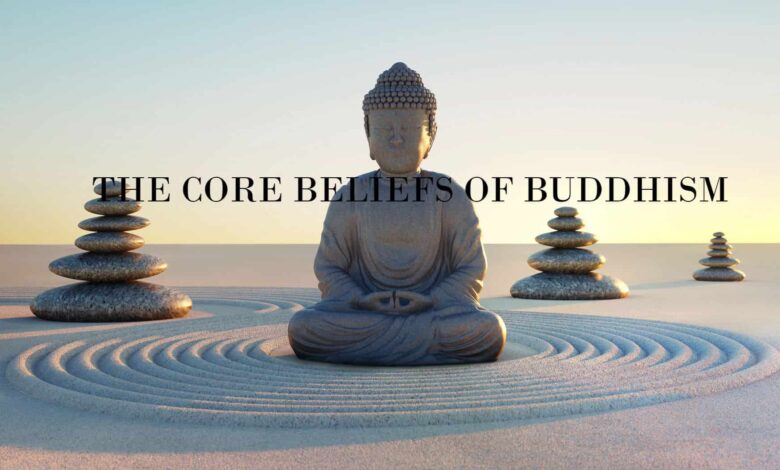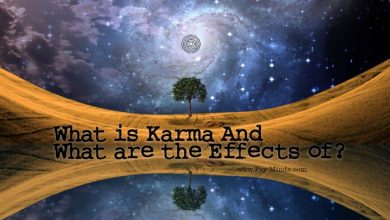
Buddhism originated in India and spread to China during the Han Dynasty. By the second century CE, Buddhism had become an integral part of Chinese culture. This is when Buddhism began to mix with Taoism and became known as Chan/Zen (禪) Buddhism. This style of Buddhism also incorporates the Yin-Yang theory and the balance of opposites. Throughout the centuries, Buddhism has evolved and been practised in many countries throughout the world.
Buddhist philosophical literature is vast and varied and scores of schools have evolved within the religion. The Abhidharma Schools of Burma, for example, explore the constituents of reality. The Huayan School of China elaborates on universal causality, while the Gelug school of Tibet explores the relationship between emptiness and dependent origination.
Is It A “Religion”
Is Buddhism a philosophy or religion? Westerners have tended to claim the latter due to the western concept based on Judeo-Christian beliefs. It made them see the need to label something as ‘real religion’ or not, based on a set of narrow beliefs.
The need to whether or not to categorise something as a religion can be traced back to the Abrahamic religions of Christianity, Islam and Judaism as they all have the same creator ‘God’. It is also believed that these three are the root of the same tree. Due to the fact that they had become some of the largest prominent religions, it has caused people with biased lenses to view what ‘real’ religion is.
So, what are the arguments for Buddhism being a religion? According to the Oxford Dictionary, the definition for religion is “A particular system of faith and worship of gods”. If we were to cross-check with the sutras, evidence shows that Buddha did discuss metaphysical aspects of reality that are typically associated with religion, though he stressed that it was not as important as the practice itself, they are still part of the Buddhist teachings. The most “religious” aspects of Buddhism are probably the Buddha’s discussions of Samsara, Karma and the various realms of existence.
Is It A “Philosophy”
Buddhism is a practice of contemplation and inquiry that doesn’t depend on belief in God or a soul or anything supernatural. Therefore, the theory goes, it can’t be a religion, but more of a philosophy. People who are seeking a non-religion to affiliate with are very much attracted to this perception of Buddhism.
According to Dictionary.com, the definition of philosophy is “the rational investigation of the truths and principles of being, knowledge, or conduct.” This is indeed something that fits into Buddhism very snugly. The Buddha’s teachings are referred to as the Dhamma (or Dharma in Sanskrit), which literally means the ultimate truth or the truth about reality and the Buddha encourages followers to investigate his teachings for themselves. The Buddha states that one should not believe in things simply because they hear it, it comes from their masters, is a part of the tradition, etc.; but to investigate for themselves and if they find that: “… these things are good; these things are not blameable; these things are praised by the wise; undertaken and observed, these things lead to benefit and happiness, enter on and abide in them”.
Not to mention, the Buddha’s teachings emphasized personal practice and adhering to moral principles above any kind of dogma. Even in regards to his own teaching, the Buddha doesn’t describe them as divine laws, but as practical guidelines to follow for one’s own happiness
It Is A Way of Life
Everyone has the right to their own perception of Buddhism, but of cause, a basic understanding of what a religion is, what philosophy is and the concepts and purposes of Buddhism is crucial. Based on the teachings and concepts of Buddhism, I have come to the conclusion that the ultimate goal and purpose make Buddhism more of a way of life rather than a philosophy or religion.
It is all about deciding your own life as an individual and setting yourself on the right path to obtain happiness and end suffering. “Buddhism is a righteous way of life for the peace and happiness of every living being…. It is a Teaching for the entire universe. It is a Teaching for all time. Its objectives are selfless service, good-will, peace, salvation and deliverance from suffering”- (Dhammanada).
All these findings and discoveries, it has vastly altered my point of view of how I look at life and how I make my decision. I try to implement them and use them as a guide in my life. Given the information, I hope others will also take into consideration developing their own point of view on Buddhism, give Buddhism the opportunities to change their lives and spread this information to others.




